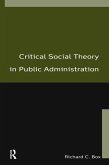#1 Education pays in the labor market, and it is not an exception. High school graduates earn more than dropouts, college graduates earn more than high school graduates, and holders of advanced degrees do even better.
#2 The disconnect between the curriculum and the job market has a simple explanation: educators teach what they know, and most have little firsthand knowledge of the modern workplace. Yet this still doesn't explain why students spend so much time studying subjects that aren't relevant to the modern labor market.
#3 If education improves students' skills, we should not be surprised by the impractical subjects that students have to study. We should be equally surprised by the eminently practical subjects that students don't have to study.
#4 The education system seems to have a weak tie between curriculum and labor market, as well as a strong tie between educational success and professional success. Yet employers seem to disagree, as they use academic track records to decide whom to hire and how much to pay.
Dieser Download kann aus rechtlichen Gründen nur mit Rechnungsadresse in A, B, BG, CY, CZ, D, DK, EW, E, FIN, F, GR, HR, H, IRL, I, LT, L, LR, M, NL, PL, P, R, S, SLO, SK ausgeliefert werden.









